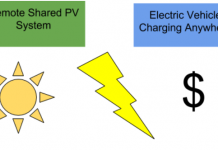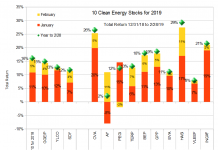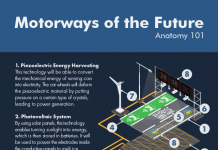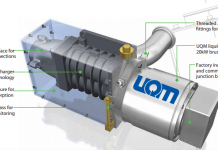Jim Lane
 VW is facing up to $18.07 billion in fines; recalls, mandatory vehicle emission fixes on the horizon; investigations underway at EPA and in California as “defeat devices” uncovered that evade clean air regulations.
VW is facing up to $18.07 billion in fines; recalls, mandatory vehicle emission fixes on the horizon; investigations underway at EPA and in California as “defeat devices” uncovered that evade clean air regulations.
In Washington, EPA issued a notice of violation of the Clean Air Act to Volkswagen AG, Audi AG, and Volkswagen Group of America, Inc. alleging that four-cylinder Volkswagen and Audi diesel cars from model years 2009-2015 carry a “defeat device” which circumvents EPA emissions standards for certain air pollutants.
Specifically, the EPA alleges that a sophisticated software algorithm on certain Volkswagen vehicles detects when the car is undergoing official emissions testing, and turns full emissions controls on only during the test.
The effectiveness of these vehicles’ pollution emissions control devices is greatly reduced during all normal driving situations, according to the EPA. “This results in cars that meet emissions standards in the laboratory or testing station, but during normal operation, emit nitrogen oxides, or NOx, at up to 40 times the standard. The software produced by Volkswagen is a “defeat device,” as defined by the Clean Air Act,” the EPA wrote in its Notice of Violation.
VW facing up to $18.07 billion in fines
VW is facing up to $18.07 billion in fines for an estimated 482,000 violations of the Clean Air Act, and the EPA may seek injunctive relief. This could take the form of a mandatory recall. Meanwhile, individuals associated with the violations may be subject to a further $1.8 billion in civil penalties.
For purposes of comparison, BP paid $18.7 billion in fines to settle claims stemming from the Deepwater Horizon disaster.
Is there room for some benefit of doubt for VW?
Alas, not much room for hope. According to EPA, VW admitted to installing the software earlier this year, which EPA has characterized as a “defeat device”.
In a statement released Sunday, Volkswagen CEO Prof. Dr. Martin Winterkorn said:
The U.S. Environmental Protection Agency and the California Air Resources Board (EPA and CARB) revealed their findings that while testing diesel cars of the Volkswagen Group they have detected manipulations that violate American environmental standards.
The Board of Management at Volkswagen AG takes these findings very seriously. I personally am deeply sorry that we have broken the trust of our customers and the public. We will cooperate fully with the responsible agencies, with transparency and urgency, to clearly, openly, and completely establish all of the facts of this case. Volkswagen has ordered an external investigation of this matter.
We do not and will not tolerate violations of any kind of our internal rules or of the law.
The trust of our customers and the public is and continues to be our most important asset. We at Volkswagen will do everything that must be done in order to re-establish the trust that so many people have placed in us, and we will do everything necessary in order to reverse the damage this has caused. This matter has first priority for me, personally, and for our entire Board of Management.
VW’s meteoric diesel sales boom
Volkswagen is touting its line of diesel passenger vehicles as “a whole family of front runners,” ironic in that the company has been accused by EPA of running a front.
One thing there is no doubt about in the background to this story, “Volkswagen has sold more diesel cars in the U.S. than every other brand combined,” and the company attributes its TDI Clean Diesel success to “long range without sacrifice”, describing its efforts as a “Promise kept”.
Investigations pending
California is separately issuing an In-Use Compliance letter to Volkswagen, and EPA and the California Air Resources Board have both initiated investigations based on Volkswagen’s alleged actions.
“Using a defeat device in cars to evade clean air standards is illegal and a threat to public health,” said Cynthia Giles, Assistant Administrator for the Office of Enforcement and Compliance Assurance. “Working closely with the California Air Resources Board, EPA is committed to making sure that all automakers play by the same rules. EPA will continue to investigate these very serious matters.”
“Working with US EPA we are taking this important step to protect public health thanks to the dogged investigations by our laboratory scientists and staff,” said Air Resources Board Executive Officer Richard Corey. “Our goal now is to ensure that the affected cars are brought into compliance, to dig more deeply into the extent and implications of Volkswagen’s efforts to cheat on clean air rules, and to take appropriate further action.”
Vehicles covered
The allegations cover roughly 482,000 diesel passenger cars sold in the United States since 2008. Affected diesel models include:
• Jetta (Model Years 2009 – 2015)
• Beetle (Model Years 2009 – 2015)
• Audi A3 (Model Years 2009 – 2015)
• Golf (Model Years 2009 – 2015)
• Passat (Model Years 2014-2015)
What is NOx again?
NOx pollution contributes to nitrogen dioxide, ground-level ozone, and fine particulate matter. Exposure to these pollutants has been linked with a range of serious health effects, including increased asthma attacks and other respiratory illnesses that can be serious enough to send people to the hospital. Exposure to ozone and particulate matter have also been associated with premature death due to respiratory-related or cardiovascular-related effects. Children, the elderly, and people with pre-existing respiratory disease are particularly at risk for health effects of these pollutants.
Clean Air Act background
The Clean Air Act requires vehicle manufacturers to certify to EPA that their products will meet applicable federal emission standards to control air pollution, and every vehicle sold in the U.S. must be covered by an EPA-issued certificate of conformity. Motor vehicles equipped with defeat devices, which reduce the effectiveness of the emission control system during normal driving conditions, cannot be certified. By making and selling vehicles with defeat devices that allowed for higher levels of air emissions than were certified to EPA, Volkswagen violated two important provisions of the Clean Air Act.
The investigative background
EPA and CARB uncovered the defeat device software after independent analysis by researchers at West Virginia University, working with the International Council on Clean Transportation, a non-governmental organization, raised questions about emissions levels, and the agencies began further investigations into the issue. In September, after EPA and CARB demanded an explanation for the identified emission problems, Volkswagen admitted that the cars contained defeat devices, according to EPA’s Notice of Violation.
So, you were hoping to get good performance and cleaner air from your VW or Audi – what now?
“It is incumbent upon Volkswagen to initiate the process that will fix the cars’ emissions systems,” says EPA.
But, for now, owners of cars of these models and years do not need to take any action. “Car owners should know,”‘ the EPA said in a statement, “that although these vehicles have emissions exceeding standards, these violations do not present a safety hazard and the cars remain legal to drive and resell.”
For now, switch to renewable diesel. Nexte’s (NEF.F) NEXTBTL renewable diesel, sold extensively in the EU and the US,
reduces NOx emissions by 9% compared to conventional diesel fuel. More on that here.
VW and renewable diesel
In June, Amyris (AMRS) announced the successful completion of a diesel demonstration program with Volkswagen of America that was designed to test the commercial readiness of Amyris renewable diesel and its ability to enhance VW’s innovative and advanced diesel technology. The collaboration included evaluating emissions reductions and demonstrating performance of Volkswagen’s existing TDI Clean Diesel technology using advanced renewable diesel fuel.
Utilizing vehicles provided by VW in real-world driving conditions, the two-year-long program to assess the results reinforced the company’s data that greenhouse gas (GHG) emissions were reduced by more than 60 percent on a well-to-wheel basis when using Amyris’s No Compromise renewable diesel. In addition, the program demonstrated fuel economy that was similar to or improved over petroleum-based fuels, together while maintaining outstanding engine performance under a variety of conditions.
Audi, renewable diesel and advanced fuels
In April, Audi’s pilot plant in Dresden has started production of the synthetic fuel Audi e diesel. After a commissioning phase of just four months, the research facility in Dresden started producing its first batches of high‑quality diesel fuel a few days ago. To demonstrate its suitability for everyday use, Federal Minister of Education and Research Prof. Dr. Johanna Wanka put the first five liters into her official car, an Audi A8 3.0 TDI clean diesel Quattro on Tuesday.
Joule and Audi formed a partnership in 2011 to accelerate the development and commercialization of CO2-neutral fuels. These efforts include fuel testing and validation, lifecycle analysis and support for Joule’s production facility in Hobbs, New Mexico, where demonstration-scale production of ethanol is underway. Audi is also supporting Joule’s hydrocarbon product, which was previously tested and shown to meet ASTM specifications in diesel blends of up to 50%. This product will follow ethanol to market.
In May, Global Bioenergies and Audi announced that the first batch of renewable gasoline has been produced, converted into isooctane from isobutene, by the Fraunhofer Institute at the Leuna refinery near Leipzig where Global Bioenergies is now building its demo plant.
Not the first defeat device rodeo for the EPA
The Notice is the first major violation involving mass-produced defeat devices in US vehicles since a 1998 consent decree between the EPA and Caterpillar, Cummins, Detroit Diesel, Mack, Renault Vehicles Industriels, and Volvo Truck Corp. Following that NOV, the companies agreed to pay heft fines and were subjected to NTE standards for heavy truck engines.
Why risk evading regulations with defeat devices?
As Fundamentals of Motor Vehicle Technology observes, “devices used to ‘clean up’ vehicle pollutants are costly and their use often results in a lower power output and higher fuel consumption.”
What’s the connection between power, performance, fuel economy and NOx emissions?
In a nutshell, diesel engines that use high compressions and a lean air-to-fuel ratio get great mileage, but they produce high temperatures inside the engine, and at 2500 degrees the nitrogen that is coming into the car with air (Earth’s atmosphere is 78% nitrogen) begins to react with oxygen to produce NOx.
Wasn’t BlueTec technology from Daimler-Benz supposed to address NOx emissions?
Yes, and VW/Audi licensed the technology. It does indeed reduce NOx, when switched on, using a variety of techniques but notably featuring a Selective Catalytic Reduction converter that produces nitrogen and water from nitrous oxides.
When was BlueTec deployed in the Jetta?
The 2008 Model year. Leading us to suspect that in fact it is BlueTec that is at the heart of the issue here.
Why is power a problem especially for diesel vehicles?
Gasoline engines, traditionally, have more pep, or horsepower, which is what you use when you want to travel at high-speed on the highway. Diesel engines are better known for torque, which is what you need when you’re climbing a hill and carrying a heavy load. Consequently, diesel cars have had a “low power” rap for many years, fairly or unfairly, and manufacturers have been eager to maximize and tout the power and performance of diesel cars.
Why is power specifically an opportunity area for mischief when it comes to diesel and emissions control?
At the heart of SCR technology is a diesel exhaust fluid injection, and that specifically can reduce power output and increase engine temperature. Consequently, technology has been developed over the years to delay DEF injection, for example, when climbing hills.
It may well be the case we don’t yet precisely know that DEF injection has been postponed via this snarky algorithm that the EPA mentioned, until the vehicle next visits the shop for an EPA emissions test.
More on the story
More information on EPA’s Notice of Violation.
More information on CARB’s In-Use Compliance Letter.
Jim Lane is editor and publisher of Biofuels Digest where this article was originally published. Biofuels Digest is the most widely read Biofuels daily read by 14,000+ organizations. Subscribe here.








